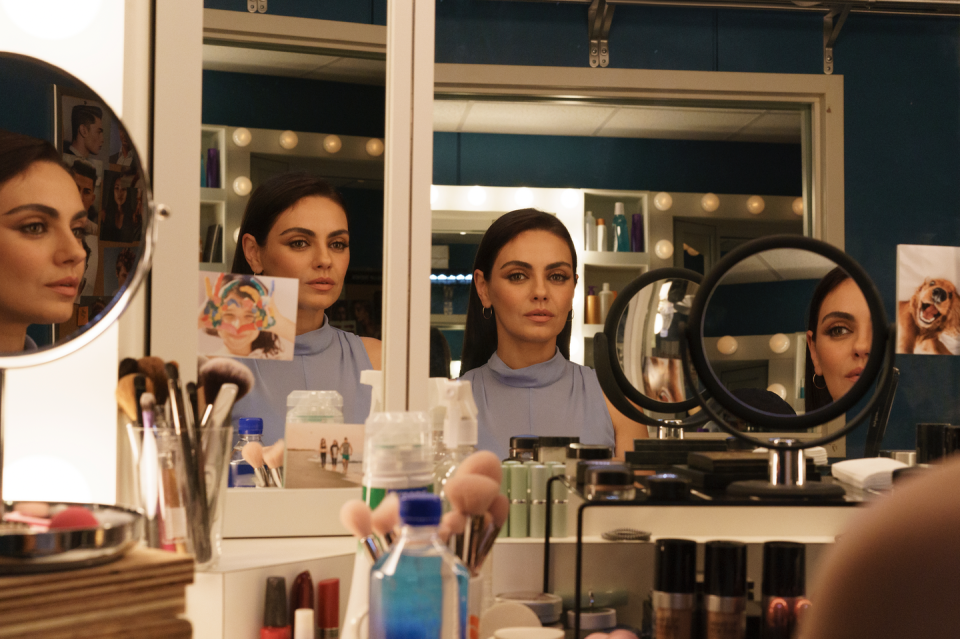The ending of Netflix's Luckiest Girl Alive, explained

TW: Sexual assault, rape and murder
Ever since it dropped over the weekend, Netflix's latest thriller, Luckiest Girl Alive starring Mila Kunis, has remained firmly in the site's Top 10, with fans already praising the film for its depiction of victim blaming.
Adapted from the novel of the same name by Jessica Knoll, Luckiest Girl Alive tells the story of a successful journalist Ani FaNelli (Mila Kunis) who is engaged to her dream man. Their wedding is just six weeks away and Ani is hoping to get a new job at The New York Times. However, her picture perfect life threatens to be destroyed when a documentary maker invites her to take part in a film about the school shooting she survived as a teenager.

Fans of the movie have been sharing their reactions to the ending of the movie, with many saying it was "the perfect ending" and others saying they were emotional and cried during the final scenes. So how exactly does Luckiest Girl Alive end? And how similar is it to the ending of the book?
This is everything you need to know about the ending of Luckiest Girl Alive on Netflix.
Luckiest Girl Alive on Netflix ending, explained
In the film, viewers learn Ani was gang raped as a teenager by the popular boys in her class Peyton, Liam, and Dean, and carries the trauma of that night with her.
As a teenager Ani shared what happened to her with her friend Arthur, who shared with her he and their friend Ben had also been bullied by the same boys.
Soon after, Ben and Arthur enact a shooting on their school. Arthur spares Ani during the shooting and Dean, who also survives, then spreads a rumour that Ani was part of the plan to shoot everyone.

Throughout the movie Ani grapples with her trauma, especially having to watch her rapist, Dean, have a successful career as a writer and advocate for gun control.
However, by the end of the movie Ani decides to share her experience after encouragement from her boss. Ani ends up writing a piece for The New York Times and secretly records Dean confessing to raping her as a teenager.
Whilst at the rehearsal dinner for her wedding to Luke, Ani receives the finished article, which is about to be published. Ani shows it to Luke, who says he wished she had dealt with the matter privately. Ani then confesses she has been "using" him to hide from her trauma and decides not to marry him.
Ani stays in New York and changes apartment. She receives an overwhelming reaction from other women who tell her their stories and she begins her career at The New York Times.
The final scene of Luckiest Girl Alive ends with Ani confronting a fellow journalist who supports Dean and accuses Ani of using him for her "15 minutes of fame". Ani goes up to her and asks for her name, but doesn't wait for her to give it and instead says to the woman: "I'll just remember you as the woman I told to go f**k herself on fifth avenue."
Is Netflix's Luckiest Girl Alive ending different to the book?

Luckiest Girl Alive is based on a 2015 novel of the same name by Jessica Knoll. Knoll was heavily involved in the production of the Netflix movie and along with Mila Kunis, they worked to change the ending of the film.
In the book Ani does not write an essay about her experience, however in the film it forms a key part of the conclusion to Luckiest Girl Alive.
Knoll explained they wanted to change the ending to reflect Knoll's own experience of when she shared an essay about her story of sexual assault for Lenny Letter.
In an interview with Entertainment Weekly, Knoll explained: "When Mila came on, there were several conversations about how the ending wasn't quite landing.
"At some point I do remember saying how when I wrote my essay for Lenny Letter that I was just inundated with messages from women sharing their stories, and that unlocked something in us where we were like, 'Maybe there's a way to use that to shape our ending.'
"It's very meta that it's a fictional story, a fictional character, but there are even more elements that are inspired by my real life. I like that we looked at the year that followed me writing the book and writing my essay, and the reaction to it and going on a TV show to talk about it. I liked that we embedded that into the movie because I think it makes for a more epic journey that Ani goes on."
Luckiest Girl Alive is available on Netflix now.
For help with any of the issues discussed in this article, visit: Rape Crisis England & Wales, Rape Crisis Scotland, or Rape Crisis Northern Ireland. RASASC provides emotional and practical support for survivors, families and friends.
You Might Also Like

